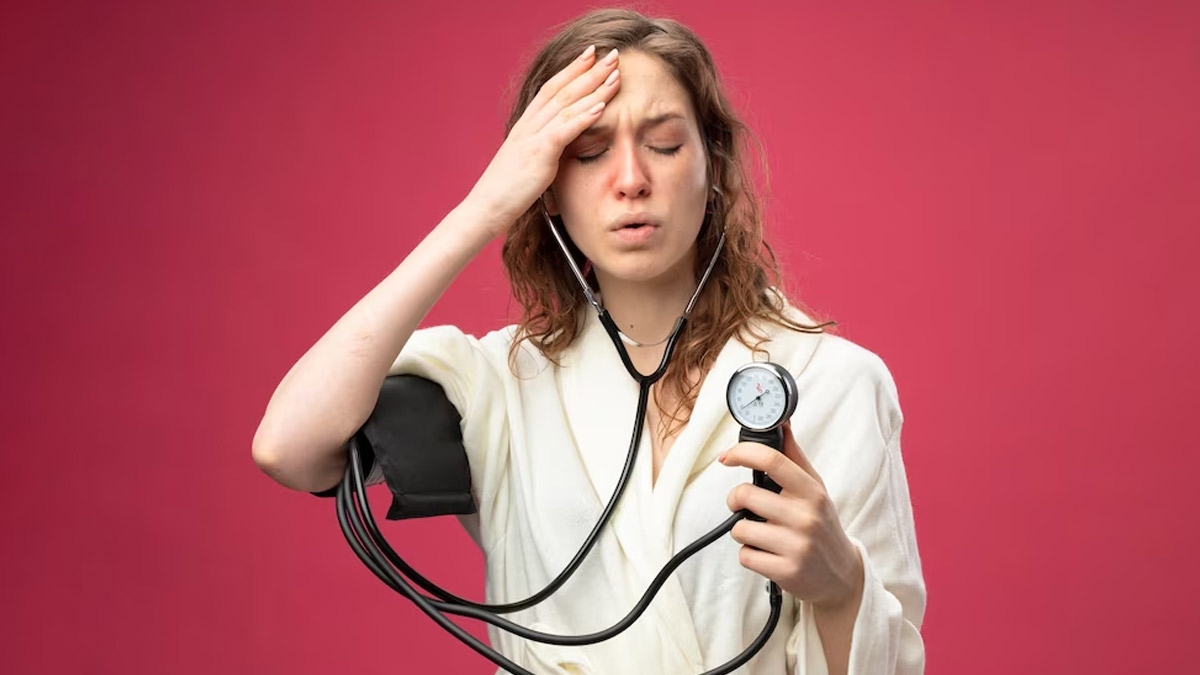
According to WHO, high blood pressure or hypertension is one of the primary risk factors for cardiovascular diseases. Around 27% deaths in India are caused due to CVD which is highly concerning. This World Heart Day, Dr Amit Bhushan Sharma, Director & Unit Head- Cardiology, Paras Health Gurgaon informs about the different types of hypertension and how they should be treated.
Hypertension also known as high blood pressure affects the arteries. When you have high BP, the blood flows in the arteries consistently with a great force making it difficult for the heart to pump blood. The normal blood pressure of an average person is 120/80 mm Hg. Hypertension is characterised by increased blood pressure, severe headache, chest pain, dizziness, shortness of breath, anxiety, nausea, and many others.
Types of Hypertension
Primary hypertension or essential hypertension: It is caused by the combination of poor diet, unhealthy lifestyle, age, stress, and physical inactivity. Changes in diet and lifestyle can be beneficial in lowering blood pressure.
Secondary hypertension: This hypertension is caused due to irreversible changes in the body. This hypertension can only be treated by medication and in some cases, surgery. The causes include narrowing or blocking of arteries, hormonal imbalance, thyroid, constriction of aorta, adrenal gland disease, and more.
Resistant hypertension: This hypertension is difficult to control even with medications. Similar to secondary hypertension, the causes in this type are also either unidentified or irreversible. After identification of cause, the patient can be successfully treated with medications.
Malignant hypertension: This is the most severe type of hypertension characterised by increased blood pressure and multiple organ damage.
Isolated systolic hypertension: This is the most occurring hypertension among the older adult population caused when the arteries become stiff.
Also Read: Can High Cholesterol Cause High Blood Pressure
Watch this video to know what causes hypertension:
Stages of Hypertension
According to Dr Sharma, hypertension progresses slowly and causes severe harm to the person over time. It grows in stages with increasing severity. Following are the four stages of hypertension:
Normal: In this stage, the blood pressure remains normal at 120/80 mm Hg. A person with blood pressure in this ratio is considered healthy.
Elevated: In this stage, the systolic blood pressure ranges between 120 to 129 mm Hg and diastolic blood pressure remains below 80 mm Hg. This is majorly caused by unhealthy lifestyle and poor diet choices. However, weight management, a balanced diet, and healthy lifestyle can prevent the condition from worsening. In addition, regular check-ups and stress management can also improve health.
Stage 1: In this stage, a person has a blood pressure reading of 130-139 mm Hg or 80-89 mm Hg. Medical professionals may recommend medications at this stage; however, it can still be treated with significant lifestyle changes including healthy diet, regular exercise, less intake of sodium, and weight management.
Also Read: I Got A High Blood Pressure Reading Once; Does It Mean I Have Hypertension?

Stage 2: The blood pressure reading of 140/90 mm Hg or higher is categorised under stage 2 hypertension. People with stage 2 hypertension are at a higher risk of stroke and heart attack.
Hypertension can damage the arteries. As a result, the arteries may become less flexible and even get narrowed leading to insufficient blood supply to the heart and other parts of the body. This may even lead to heart failure.
How to manage hypertension
Here are some tips by Dr Sharma to keep hypertension under control:
- Weight management
- Regular exercise
- Balanced diet (less intake of sodium)
- Limit alcohol
- Quit smoking
- Reduce stress
- Adequate sleep
- Regular check-ups
Keeping your blood pressure under control is extremely important for your heart and cardiovascular health. You must monitor your vitals regularly and take necessary actions to improve your health and ward off the risks associated with high blood pressure.







